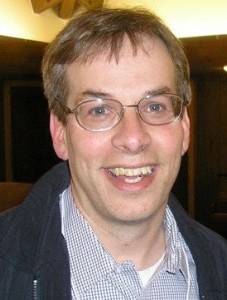“Neutral” topics include: “Crossing Boundaries and Breaking Rules: Queerness as Christian Practice”
By Dwight Widaman |
The article, “University of Kansas Forums Discuss ‘Queering Christianity'” on the website TheCollegeFix.com has generated a lot of comments. Author Alexandra Desantis published the piece March 11 but, until now, it had slipped under the radar of readers in Kansas.
The article explores the Ecumenical Campus Ministries at KU and the organization’s focus on homosexuality and faith in several forums and lectures during the current school year. The stated goal of the campus ministry is to give homosexuals and transgendered individuals an opportunity to share how their homosexuality plays a role in their faith journey.
The article begins: “There is nothing wrong with being queer and Christian.”
That’s the premise behind “Queering Christianity,” the overarching Ecumenical Campus Ministries’ Faith Forum topic broached during a series of events at the University of Kansas throughout this school year.”
The forums, according to ECM’s Facebook page and website, include topics such as: “Do I Trust God Enough? A Transgender Woman’s Journey of Faith;” and “A Queer Search for God: ‘Otherness’ as a way to find God, a Muslim perspective.”
Last fall KU’s website described one forum titled “Crossing Boundaries and Breaking Rules: Queerness as Christian Practice,” as a look at “what it means to follow Jesus by challenging all kinds of social expectations.”
ECM’s website says that the purpose for these discussions is about “hearing stories from people who have realized in their faith journeys that there is nothing wrong with being queer and Christian.” The website goes on to say that their goal is “to cultivate open hearts, minds, and spirits; to carry out difficult dialogues that can help build bridges between different peoples, experiences, religions, and world views; and to build foundations of love and understanding that welcomes a call to compassion and justice while affirming an interdependence with each other and the earth.”
It also emphasizes that it is a “neutral” place for students to hear opposing views and, one must assume, speak an opposing view.
But exactly how “neutral” are the forums meant to be?

Rev. Dwight Welch says he wants to share a “progressive” faith with students. But is it that truly ecumenical?
In a front-page story welcoming Rev. Dwight Welch as the organization’s new director in May of 2013, the Ecumenical Campus Ministry lists his considerable experience in socially liberal “progressive” causes including mostly, but not limited to, work with activist groups like the GLBT Resource Center and the Saluki Rainbow Network among others. Also listed as part of his experience were his lobbying efforts in Wyoming.
The organization states, “He is passionate about the challenge of relating a progressive (emphasis added) and open faith to students.”
But the campus ministry insists they are open to dissenting views themselves, or at least tolerant. A study of the organization’s Facebook page and website did not turn up any “dissenting views” or even topics outside the paradigm of “progressive” or more liberal-minded faith. While numerous activities are planned around topics such as “Food Not Bombs” and “Eco Justice,” missing from the “ecumenical” effort are any relevant topics that might appeal to the more conservative population on campus. Are you a conservative Christian who feels alone in a liberal university environment? Do your views supporting creationism make you an outsider? Do you believe homosexuality is antithetical to Christian teaching? No mention of these topics. In an organization that has “ecumenical” in the name and states they want to serve the “entire” campus, the thousands of students who have these questions may feel the organization lacking in providing insight that might help them in their faith walk.
At this stage in life, many students, wrestling with a wide variety of questions, are searching for that insight from truly neutral sources. Can the Ecumenical Campus Ministry be that source? ECM still believes it can.
“We try not to tell people what to believe,” Sean Weston, co-cordinator of the forums stated in thefix article, “and we welcome all people into a dialogue, not a debate. I believe that the diversity in our group is a gift from God.”
Weston may be correct. ECM may not tell students “what to believe” but they may not have to. If only political, spiritual or sexual topics favored by self-described liberal campus ministry leaders are discussed, what does that say about the relevance of topics important to others who don’t share ECM’s world view? Where’s the diversity in that?
To read the article in its entirety, click here: TheCollegeFix







